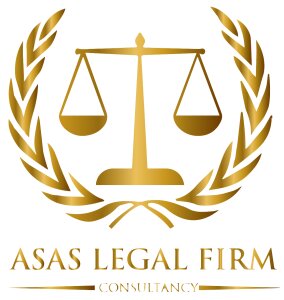Best Trusts Lawyers in Cairo
Share your needs with us, get contacted by law firms.
Free. Takes 2 min.
List of the best lawyers in Cairo, Egypt
About Trusts Law in Cairo, Egypt
Trusts in Cairo, Egypt is a legal arrangement where a person (trustee) holds assets on behalf of another person (beneficiary). Trusts are commonly used for estate planning, asset protection, and charitable purposes. The laws governing trusts in Cairo, Egypt can be complex and it is advisable to seek legal advice when setting up or managing a trust.
Why You May Need a Lawyer
You may need a lawyer for trusts in Cairo, Egypt if you are creating a trust, managing a trust, dealing with disputes involving a trust, or if you have questions about the legal implications of trusts. A lawyer can help ensure that your trust is set up properly and in compliance with local laws.
Local Laws Overview
In Cairo, Egypt, trusts are governed by the Trusts Law No. 104 of 1959. This law outlines the legal framework for trusts, including the duties and responsibilities of trustees, the rights of beneficiaries, and the procedures for creating and managing trusts. It is important to consult with a lawyer who is familiar with local trust laws to ensure compliance.
Frequently Asked Questions
1. What is a trust?
A trust is a legal arrangement where a trustee holds assets on behalf of a beneficiary.
2. How do I create a trust in Cairo, Egypt?
To create a trust in Cairo, Egypt, you must draft a trust deed outlining the terms and conditions of the trust and transfer assets to the trustee.
3. What are the duties of a trustee in Cairo, Egypt?
Trustees in Cairo, Egypt have a legal obligation to act in the best interests of the beneficiaries and manage the trust assets prudently.
4. Can I be a trustee and a beneficiary of the same trust in Cairo, Egypt?
Yes, it is possible to be both a trustee and a beneficiary of the same trust in Cairo, Egypt.
5. What are the tax implications of trusts in Cairo, Egypt?
Trusts in Cairo, Egypt may have tax implications for both the trustee and the beneficiaries. It is recommended to consult with a tax advisor for specific advice.
6. Can a trust be revoked in Cairo, Egypt?
It may be possible to revoke a trust in Cairo, Egypt depending on the terms outlined in the trust deed. Consult with a lawyer for guidance.
7. What happens if a trustee breaches their duties in Cairo, Egypt?
If a trustee breaches their duties in Cairo, Egypt, they may be held liable for any damages incurred by the beneficiaries.
8. Can a trust protect assets from creditors in Cairo, Egypt?
Trusts in Cairo, Egypt may offer asset protection from creditors, depending on the specific circumstances of the trust.
9. How do I choose a trustee for my trust in Cairo, Egypt?
When choosing a trustee for your trust in Cairo, Egypt, consider someone who is trustworthy, reliable, and capable of managing trust assets effectively.
10. How can a lawyer help me with trusts in Cairo, Egypt?
A lawyer can provide legal advice on setting up and managing trusts, ensure compliance with local laws, and represent you in any legal disputes involving trusts.
Additional Resources
For more information on trusts in Cairo, Egypt, you can refer to the Egyptian Financial Supervisory Authority (EFSA) or consult with a legal organization specializing in trusts.
Next Steps
If you require legal assistance with trusts in Cairo, Egypt, it is recommended to consult with a lawyer who is experienced in trust law. They can provide guidance on creating, managing, or resolving any issues related to trusts in Cairo, Egypt.
Lawzana helps you find the best lawyers and law firms in Cairo through a curated and pre-screened list of qualified legal professionals. Our platform offers rankings and detailed profiles of attorneys and law firms, allowing you to compare based on practice areas, including Trusts, experience, and client feedback.
Each profile includes a description of the firm's areas of practice, client reviews, team members and partners, year of establishment, spoken languages, office locations, contact information, social media presence, and any published articles or resources. Most firms on our platform speak English and are experienced in both local and international legal matters.
Get a quote from top-rated law firms in Cairo, Egypt — quickly, securely, and without unnecessary hassle.
Disclaimer:
The information provided on this page is for general informational purposes only and does not constitute legal advice. While we strive to ensure the accuracy and relevance of the content, legal information may change over time, and interpretations of the law can vary. You should always consult with a qualified legal professional for advice specific to your situation.
We disclaim all liability for actions taken or not taken based on the content of this page. If you believe any information is incorrect or outdated, please contact us, and we will review and update it where appropriate.










